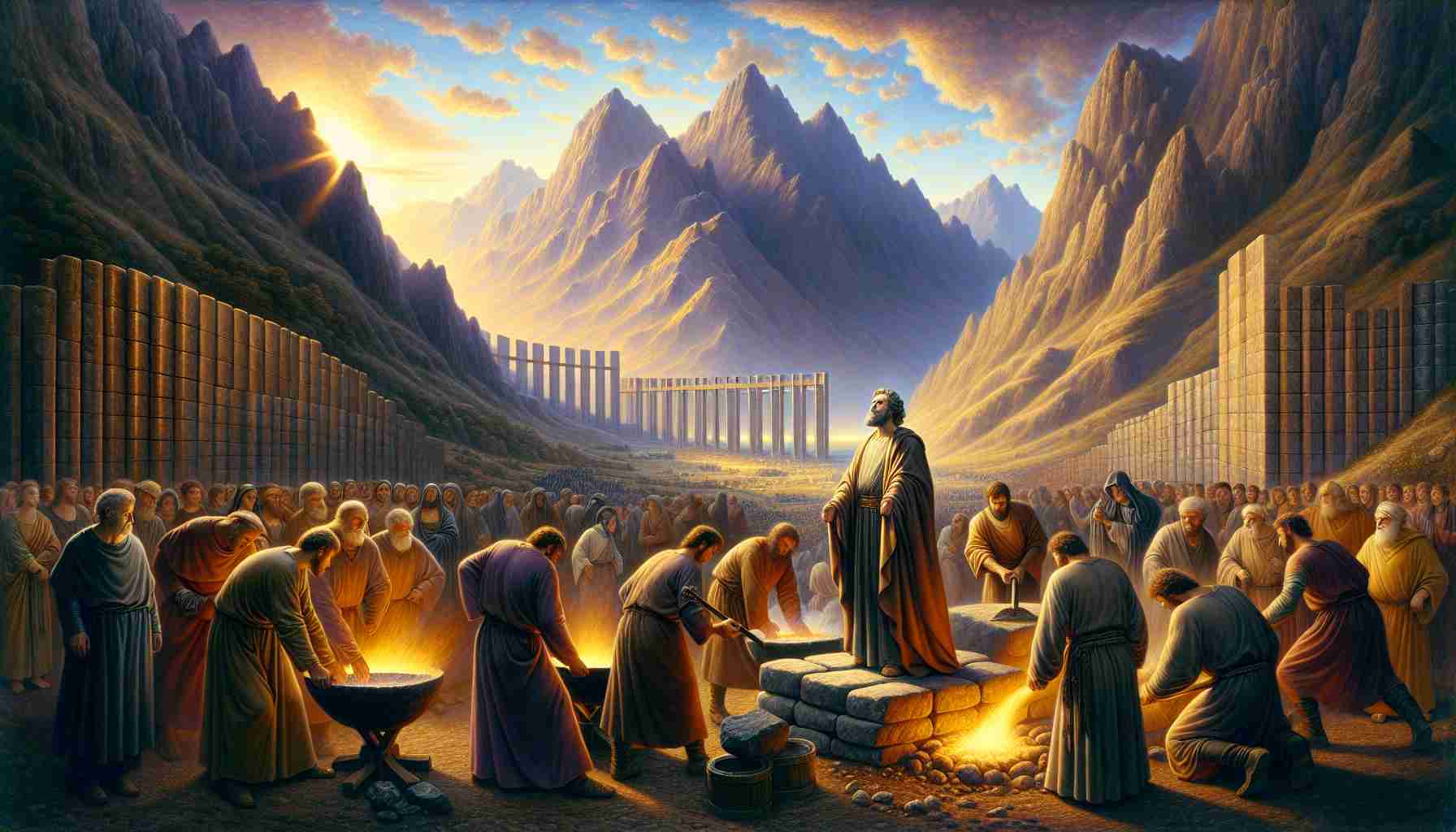

You won’t find my name in any surah, but I was a messenger in the service of Dhul-Qarnayn — the righteous ruler mentioned in the Qur’an. I carried his messages as he traveled across distant lands, spreading justice and calling people to truth. What I saw during those journeys changed my heart.
One day, after traveling for weeks, we reached a remote valley between two great mountains. The people there were unlike any I had ever seen. They spoke in a strange language, wore rough clothes, and lived in fear. Their chieftain brought them to Dhul-Qarnayn and begged him for help.
“They are called Ya’juj and Ma’juj,” the chieftain said — tribes of wild people who caused destruction wherever they passed. “They break down our walls and steal our food. Please, build a barrier to protect us. We will give you whatever payment you want.”
I waited to hear what Dhul-Qarnayn would demand. Gold? Land? Servants? But the ruler looked at the people and said, “What Allah — the Most Merciful — has given me is better than your payment. Only bring me your strength. I will build a wall, with you.”
No one said anything at first. Then a man stepped forward. “You mean... we work with you?”
“Yes,” Dhul-Qarnayn said. “It is Allah who gives strength. Now let’s use it for what is right.”
And just like that, everyone began to work. I carried water, and men passed iron stones hand to hand. The fire makers lit great flames to melt the iron, and others poured molten copper between the stones. It was the strongest wall I had ever seen.
When we finished, the people gathered around to thank him, but he raised his hands humbly and said, “This is a mercy from my Lord. But when the promise of my Lord comes, He will destroy it. And the Day of Judgment will arrive.”
I watched the people nod slowly. They didn’t understand everything he said — I didn’t either — but I saw how their eyes filled with light. For the first time in many years, they were safe. And more than that, they had seen a ruler who did not take from them, but gave. Who did not boast, but pointed always to Allah.
That day, I understood something I had carried in my heart ever since. Justice is not power over people. Justice is helping the weak while trusting the strength of Allah.
I had followed Dhul-Qarnayn across deserts and mountains, but in that valley between the hills, I saw the clearest sign: even the strongest walls fall — but those built for Allah’s sake remain in hearts forever.
And that, I believe, is the kind of justice Allah loves.
—
Story Note: Inspired by Surah Al-Kahf (18:83–101) and classical commentary from scholars such as Ibn Kathir on the story of Dhul-Qarnayn.
You won’t find my name in any surah, but I was a messenger in the service of Dhul-Qarnayn — the righteous ruler mentioned in the Qur’an. I carried his messages as he traveled across distant lands, spreading justice and calling people to truth. What I saw during those journeys changed my heart.
One day, after traveling for weeks, we reached a remote valley between two great mountains. The people there were unlike any I had ever seen. They spoke in a strange language, wore rough clothes, and lived in fear. Their chieftain brought them to Dhul-Qarnayn and begged him for help.
“They are called Ya’juj and Ma’juj,” the chieftain said — tribes of wild people who caused destruction wherever they passed. “They break down our walls and steal our food. Please, build a barrier to protect us. We will give you whatever payment you want.”
I waited to hear what Dhul-Qarnayn would demand. Gold? Land? Servants? But the ruler looked at the people and said, “What Allah — the Most Merciful — has given me is better than your payment. Only bring me your strength. I will build a wall, with you.”
No one said anything at first. Then a man stepped forward. “You mean... we work with you?”
“Yes,” Dhul-Qarnayn said. “It is Allah who gives strength. Now let’s use it for what is right.”
And just like that, everyone began to work. I carried water, and men passed iron stones hand to hand. The fire makers lit great flames to melt the iron, and others poured molten copper between the stones. It was the strongest wall I had ever seen.
When we finished, the people gathered around to thank him, but he raised his hands humbly and said, “This is a mercy from my Lord. But when the promise of my Lord comes, He will destroy it. And the Day of Judgment will arrive.”
I watched the people nod slowly. They didn’t understand everything he said — I didn’t either — but I saw how their eyes filled with light. For the first time in many years, they were safe. And more than that, they had seen a ruler who did not take from them, but gave. Who did not boast, but pointed always to Allah.
That day, I understood something I had carried in my heart ever since. Justice is not power over people. Justice is helping the weak while trusting the strength of Allah.
I had followed Dhul-Qarnayn across deserts and mountains, but in that valley between the hills, I saw the clearest sign: even the strongest walls fall — but those built for Allah’s sake remain in hearts forever.
And that, I believe, is the kind of justice Allah loves.
—
Story Note: Inspired by Surah Al-Kahf (18:83–101) and classical commentary from scholars such as Ibn Kathir on the story of Dhul-Qarnayn.